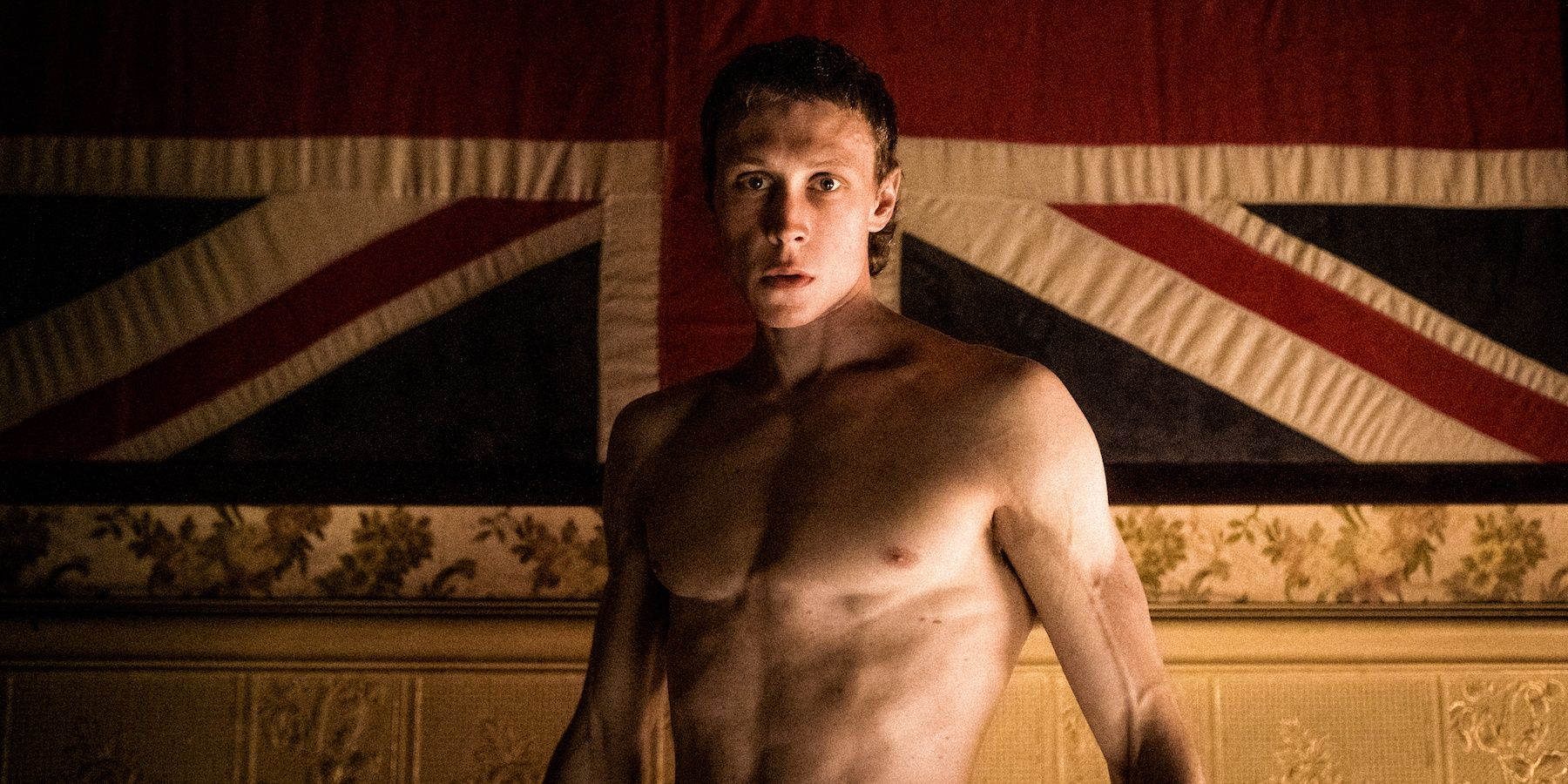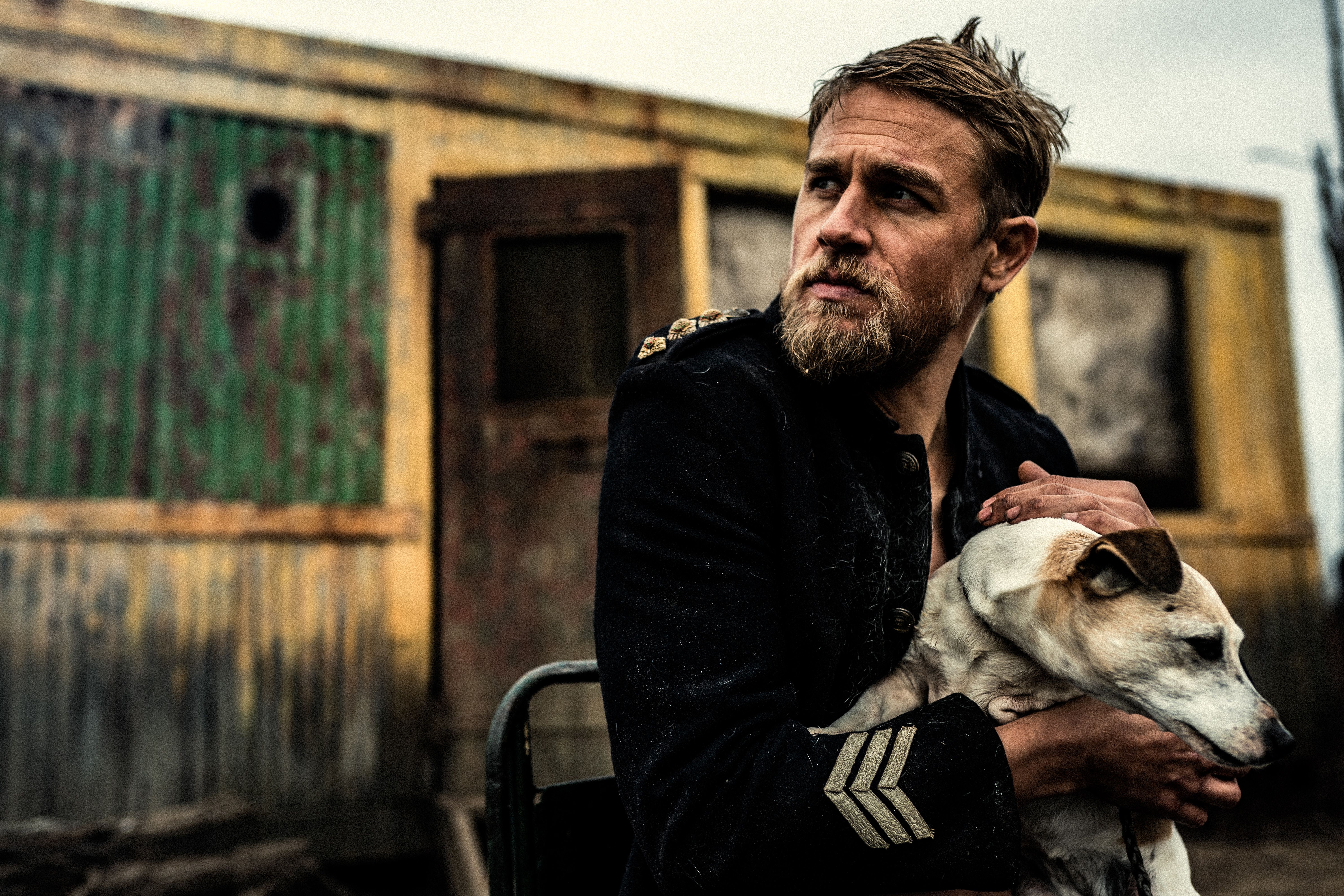It may seem odd for a movie titled True History of the Kelly Gang to begin with an onscreen disclaimer that says "Nothing you’re about to see is true," but that’s indicative of the impressionistic approach that director Justin Kurzel takes to telling the story of notorious Australian outlaw Ned Kelly. Kelly is a major figure in Australian history who has become a sort of mythic presence, with movies about his exploits dating all the way back to a 1906 silent film considered the first-ever feature-length motion picture. Through the years, he’s been played by actors including Mick Jagger, Heath Ledger and, uh, Yahoo Serious, in movies ranging from straight-faced to fanciful.
So especially for an Australian filmmaker, making a movie about Ned Kelly is a bit like making a movie about Robin Hood or Billy the Kid, someone whose story has been told so many times that the historical details have become nearly indistinguishable from hearsay. As a reporter advises in John Ford’s classic Western The Man Who Shot Liberty Valance, "When the legend becomes fact, print the legend." That’s exactly what Kurzel and screenwriter Shaun Grant have done in adapting Peter Carey’s 2000 novel, but the hazy, obtuse storytelling fails to convey what made Kelly such a galvanizing symbol for Australians.
The film is divided into three sections, the first of which picks up with Kelly when he’s about 12 years old, living in the Australian bush in 1867. It’s framed as a letter written by the adult Kelly to his unborn child, inspired partially by a real-life testimonial he wrote before his death. Young Ned (Orlando Schwerdt) is introduced spying on his mother, Ellen (Essie Davis), as she provides sexual favors to a local police sergeant (Charlie Hunnam) in exchange for protection for her family. The sergeant is the first in a string of terrible adult male influences in Ned’s life, including his degenerate father, who ends up dying in prison.
Soon after, Ned’s mother literally sells him to a burly bushranger named Harry Power (Russell Crowe), who at first seems like a more benevolent father figure, but reveals his true intentions when he forces Ned to be his accomplice in violent raids, and even pressures the boy to shoot the sergeant who harassed his mother. This lengthy section, which covers about a third of the movie, is clearly meant to establish Ned’s volatile childhood and the factors that led to his violent tendencies as an adult. However, it’s mostly just grim and unpleasant, with the young Ned as a hapless bystander to the cruelty going on around him.
Crowe is the highlight of the movie, though, with a prodigious beard that makes him look like Grizzly Adams. He even gets to sing an extremely dirty folk song during one of the movie’s few happy moments. Yet, he’s gone by the time the movie gets to its second, longest segment, where Ned (now played by 1917’s George MacKay) is now grown up and coming off a prison stint. The filmmakers leave a lot of details about Ned’s life vague, perhaps trusting the audience to fill in the gaps (even though the story is heavily fictionalized), but the result is that it’s hard to tell just how deep Ned has gotten into criminal enterprises, and what his ultimate goals are.
Ned returns home to his beloved/resented mother, discovering his younger brother Dan (Earl Cave) has grown up as well and is now engaged in various illicit activities. Ned crosses paths with yet another toxic authority figure, Constable Fitzpatrick (Nicholas Hoult), and falls in love with a prostitute named Mary (Thomasin McKenzie). After being betrayed by Fitzpatrick and seeing his mother sent to prison, Ned enlists Dan and two of his friends for a rebellion against the ruling authorities, and 80 minutes into the movie, we finally get to the Kelly gang.
Even at that point, though, the gang’s activities are often obscured or left unclear. There’s a brief mention of bank robbing, but it happens offscreen, and the group’s philosophy, rooted in historical Irish battles against oppression, is poorly articulated and treated as an afterthought. Kurzel used a similarly opaque technique to tell another true-crime story in his 2011 debut feature, The Snowtown Murders, about a cult-like leader who drew his neighbors into committing a series of killings. That approach was effective in building suspense and mystery in Snowtown, but there’s no suspense or mystery to True History, just a series of jumbled, often contradictory events, held together by moody, atmospheric cinematography and hushed voiceover from MacKay.
MacKay effectively conveys Ned’s instability, the result of his toxic, codependent relationship with his mother, who relies on Ned as protector and avenger from a young age, but also exploits him for her own gain and lashes out at him when he dares to assert his independence. Davis (star of The Babadook) gives a layered, convincing performance as a manipulative, cruel person who’s been beaten down by an unfair system, in contrast to Ned’s somewhat aloof presence (even in the crazed finale).
After directing the big budget video-game adaptation Assassin’s Creed, Kurzel is clearly back in his element here, exploring the unsavory corners of Australian history as he did in Snowtown and putting a dark spin on serious literature as he did in 2015’s Macbeth with Michael Fassbender. His techniques don’t quite come together this time, but True History remains visually striking and evocative throughout, even if it never really captures the essence of its subject.
Starring George MacKay, Essie Davis, Nicholas Hoult, Thomasin McKenzie, Orlando Schwerdt, Charlie Hunnam and Russell Crowe, True History of the Kelly Gang is available Friday on VOD.



